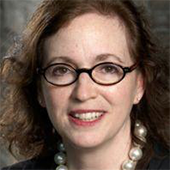Artificial Intelligence, Medicine and Ethics: What should the future hold for doctors and patients?

Tuesday 24 September
5.15pm - 6.45pm
GLT1, Medical School Building
Open to all WMS students and staff
Register
Light refreshments will be provided so please register by Friday 20 September if you'd like to come along.
Machine learning is rapidly advancing into areas of current medical practice. Software is being developed that is already better than doctors in specific areas of diagnosis and spotting disease patterns, thereby improving prognosis. It is also likely to be better than humans at organising medical services effectively.
Matt Hancock, the Health Secretary, announced on 8 August that the NHS is setting up a national AI lab – and investing £250m – to explore how best to use AI to enhance patient care and power research.
But what does this all mean for the future of doctors and their patients?
Join us for a fascinating evening of talks and discussions with leading international academics in health ethics, where you’ll have the opportunity to consider questions such as:
- If AI frees up doctors to spend more time with patients, what do we want them to spend the extra time doing?
- If AI becomes more reliable than doctors at diagnosing and prognosing illness, do we need doctors at all?
- Nurses, physician assistants and other allied professionals are already performing many of the patient-facing roles doctors once performed, at least as effectively as doctors. We may need someone to be the human interface between patients and machines, but why must this be a doctor?
- How should medical training change to accommodate greater dependence on AI assistance?
- We associate doctors with certain ethical values and standards - should these persist in our AI future? If so, whose responsibility will it be to uphold them?
- Do we need new values, and if so what should these be and how should they be decided?
Speakers
 Professor Wendy Rogers
Professor Wendy Rogers
Professor Wendy Rogers is Professor of Clinical Ethics in the Department of Clinical Medicine and Department of Philosophy at Macquarie University, Sydney. She has dual training in medicine (general practice) and philosophy. Her research focuses on practical solutions to ethical challenges in health care and she has led multi-disciplinary groups in the development of national ethics guidelines for research and for organ donation.
 Professor Stacy Carter
Professor Stacy Carter
Professor Stacy Carter is the Founding Director of the Australian Centre for Health Engagement, Evidence and Values (ACHEEV) at the University of Wollongong, a centre for deliberative and values-based health research. She is a chief investigator in the NHMRC-funded collaboration Wiser Healthcare, and works on contentious or contested health issues including over diagnosis and over treatment, screening, vaccine refusal, and artificial intelligence in healthcare. Follow her on Twitter: @stacymcarter.
 Professor Lisa Schwartz
Professor Lisa Schwartz
Professor Lisa Schwartz is Arnold L. Johnson Chair in Health Care Ethics at McMaster University. She is an expert on the ethics of humanitarian healthcare ethics and has a wealth of research experience working with medical aid organisations, including in Africa. She provides ethics policy advice to the World Health Organisation and Médecins Sans Frontières and is a founding member of the Health Technology Expert Review Panel with the Canadian Agency for Drugs and Technology in Health.
